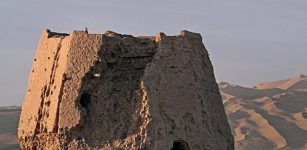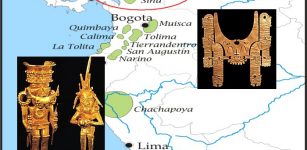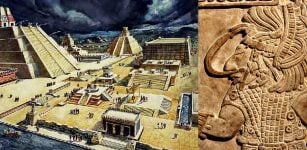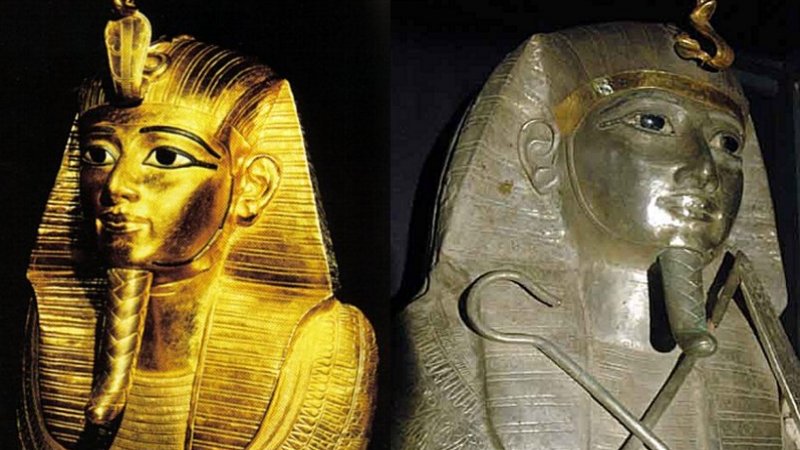‘Lios na Grainsi’ – Ireland’s Largest Stone Circle
MessageToEagle.com – Ancient stone circle ‘Stones of the Sun’ or ‘Lios na Grainsi’ (In Irish, ‘Lios na Grainsi’) was built around 2000 BC by the people who brought metal and beaker pottery to Ireland, around 2500 BC
Enclosed by 113 standing stones, the Grange Stone Circle is the largest ancient standing stone circle in Ireland. It is over 65 m (215 ft) in diameter.
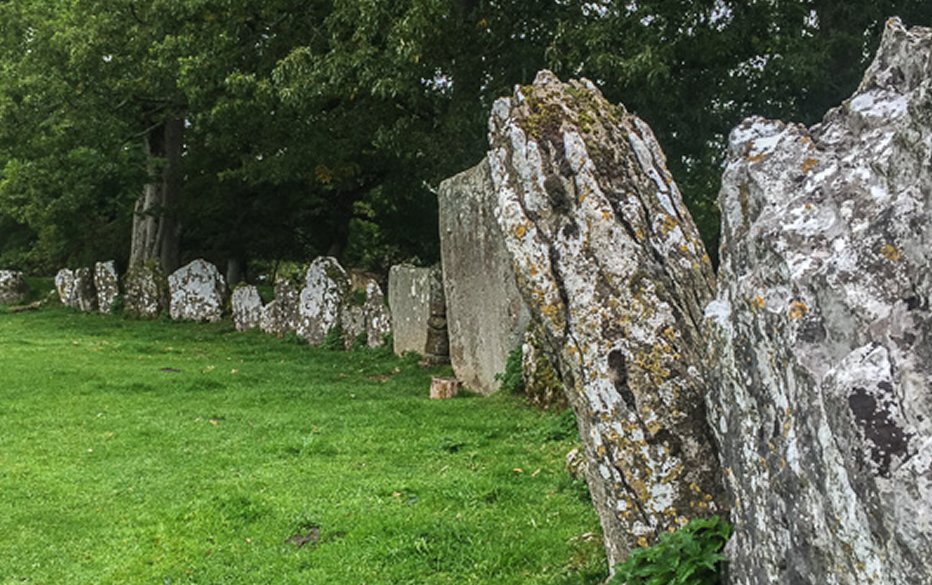
It is located 300m west of Lough Gur in County Limerick, Ireland and has almost perfect circular shape and is positioned so that at summer solstice, the sun shines directly into the center.
Lough Gur Stone Circle has always been shrouded in myth and mystery, like the whole area surrounding the fascinating Lough Gur, where humans have lived near Lough Gur at least since 3000 BC.
The circle’s largest standing stone is the monumental Ronnach Croim Duibh (the prominent Black Stone), which is over 13 feet high and weighs 40 tons.
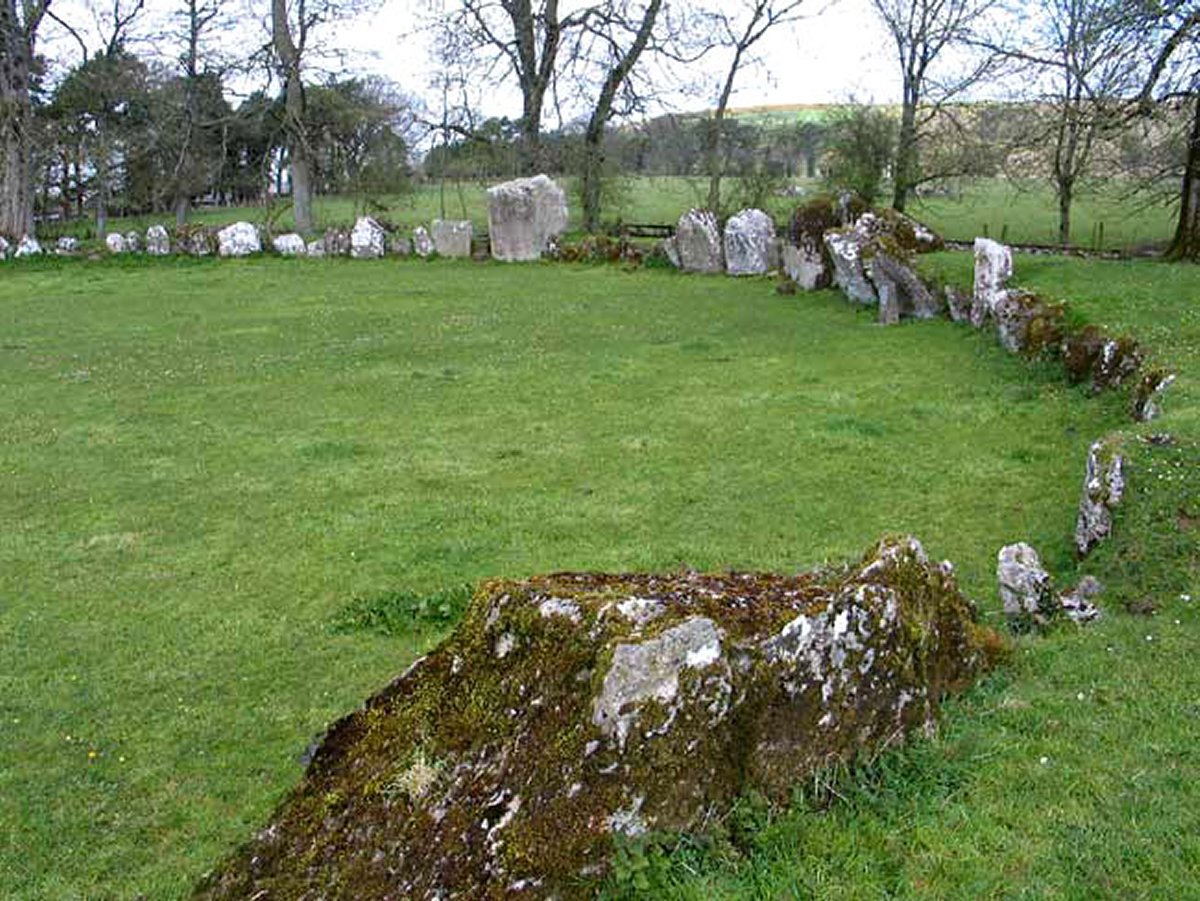
The entrance stones are also worth special attention. They are large slabs on the southwest side, whose tops slope down towards each other to form a v-shape.
It has been calculated that these stones and the entranceway were aligned with the sunset of the Festival of Samhain, a Gaelic festival marking the end of the harvest season and the beginning of winter or the “darker half” of the year.
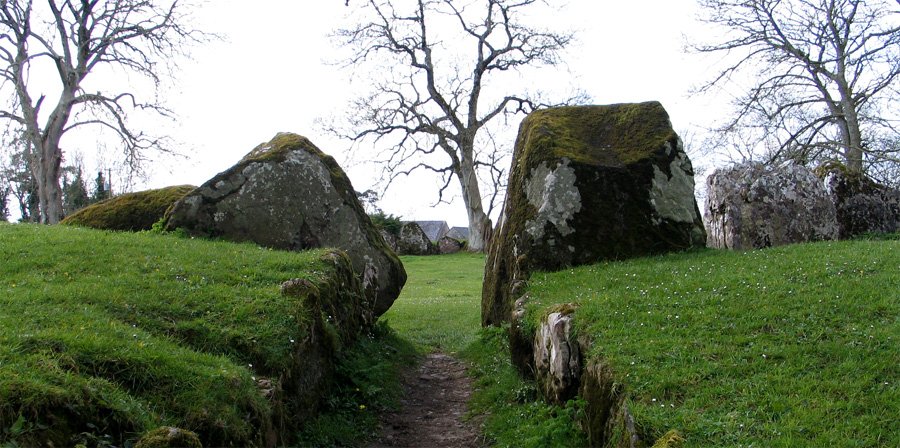
Traditionally, this festival (one of four Gaelic festivals) is celebrated from the very beginning of one Celtic day to its end, or in the modern calendar, from sunset on 31 October to sunset on 1 November, this places it about halfway between the autumn equinox and the winter solstice.
The Grange Stone Circle was excavated in 1939 and it was suggested the circles was dated from the Late Neolithic; meanwhile others suggested that the Líos was constructed in the Late Bronze Age (c. 1000 BC) on a site that may have been sacred for thousands of years.
No structures were found at the site, but archaeologists did discover a few un-burnt human bones, two hearths, some animal bones (mainly cattle), some bronze materials and numerous Neolithic sherds of pottery. Some of the pottery unearthed at the site of the circle seemed to have been deliberately broken.
MessageToEagle.com
source: Heritage Ireland

